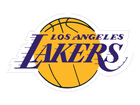
Jerry West had been an executive for the Los Angeles Lakers for almost 20 years. After the everlasting championship pressure, he was burnt out, which led to him stepping back into a consultant role. Suddenly, the itch hit. Teams began selling their pitch for Jerry West to run their organization. He was between two playoff teams and the Memphis Grizzlies. Late owner Michael Heisley flew out to Los Angeles to sell the Hall of Famer on running the Memphis Grizzlies. It wasn’t a hard pitch for West. “He just loved the idea of going somewhere to see if he could make a difference,” Ryan West said.
The former owners of the Memphis Grizzlies have come up short again in their attempt to claim a $10.7 million tax deduction for deferred compensation owed to Mike Conley and Zach Randolph. The U.S. Court of Appeals for the Seventh Circuit on Wednesday affirmed a ruling by the U.S. Tax Court to uphold an IRS disallowance of Hoops LP deduction claimed at the close of the 2012 tax year.
The dispute, now more than a decade old, centers around how the deferred compensation liability was handled before and after Memphis Basketball (a group led by Robert Pera) purchased the team in 2012 from Hoops, a group led by Michael Heisley, who passed away in 2014. The deferred compensation stemmed from the play of Conley and Randolph in the 2009, 2010 and 2011 seasons. A three-judge panel held that under federal tax law, Hoops could only deduct deferred compensation expenses when it pays the employees or contributes to a trust, pension fund or other qualified plan.
Then Grizzlies GM Chris Wallace was looking to get his team younger and shed future salary commitments at the behest of then team owner, Michael Heisley. "One of the things that we had heard was the guy, the owner, wanted to sell the team and they weren't going anywhere," Kupchak said. "They weren't having a very good season. Maybe they would lose some money, I don't know. So one of the first things we did was, with Chris, 'We can go two ways: We could give you players that add up to Pau's [salary] number, or if you prefer, we have a large expiring contract in Kwame Brown, right? And we can go that direction.' "I didn't ask him what they were trying to accomplish, I just gave them two options, and he called back and he said, 'Hey, let's work on the Kwame Brown option.'"

But the salary numbers did not quite match up, so the Lakers had to get creative. Enter Aaron McKie, who was out of the league and volunteering as a coach with his alma mater, Temple University, after playing 24 games combined the previous two seasons. "We were short a small number, but there was no way to make it work," Kupchak said. "We just didn't have any more players to put in." So he called up McKie's agent with a proposition. "I said, 'Listen, the league will allow us to sign Aaron to a rest for the season contract, and we will put him in the trade and he'd have to report in Memphis. ... Would he do it?' And I forget how much money it was, I don't know, $600,000, $800,000 for three or four months, right?"
Advertisement

McKie agreed. The trade went through. And the league, that now is a 24/7 news cycle of endless trade rumors and incremental negotiating updates, was shocked. "Chris didn't want it out," Kupchak said. "We both knew if it got out, it's not good. Just complicates things, right? "After the fact, there was certainly a lot of people saying stuff like, 'If we had known, we would've ...' But that could be sour grapes too, right?"
Kupchak was thrilled to acquire Gasol. But he didn't want to hurt Wallace in the process. "At the time, it was viewed as a very lopsided deal, and it made me uncomfortable," Kupchak explained. "I mean, obviously being on the side that got Pau, I was pleased, but you don't want your colleagues to ever get crushed. "There was a lot of negative pushback, but when a year or two later, all of a sudden, you have Marc Gasol who's the starting center making the All-Star team, the deal didn't look as lopsided then as it did maybe the first month or two."
Unlike David Stern, who said “I don’t think we can go back” to Vancouver 10 years ago, Silver provided hope for local hoops fans. “In retrospect, I wish we had a team in Vancouver right now. I think Canada could handle two NBA teams,” said Silver. “I share David’s sentiment that we do have regret. I think we were a bit ahead of our time. There was a moment in the league where prospects seemed down in terms of the team. Attendance was down, ratings were down. I understood from an economic standpoint why the then-team owner (Michael Heisley) wanted to move the team.”

The clause in the agreement, which was first reported by ESPN, was born of Pera’s tenuous acquisition of the team from previous owner Michael Heisley in 2012. During that process, the value of Pera’s technology company, Ubiquiti Networks, took a sharp plunge, forcing him to bring on Kaplan and Straus as partners with 13.5 percent equity and give a number of owners with Memphis ties, including Peyton Manning and Justin Timberlake, smaller pieces of the pie to be able to close the deal.

Advertisement

A month later, Wallace traveled to Girona to meet with Marc and his parents, both. At the same time, Wallace was negotiating with his team’s owner, the late Michael Heisley, on a potential salary offer for the younger Gasol. The currency imbalance between the dollar and the euro in 2008 mitigated any commanding financial advantage Memphis would have held over powerhouse clubs like F.C. Barcelona. Wallace, then, had to convince Heisley of the value in giving the No. 48 pick in the draft a three-year deal worth more than $10 million. Deliberation dragged on both sides and within 48 hours of Gasol’s decision deadline, Heisley remained unconvinced. So he called Pau.

The elder Gasol’s message was simple and direct: Mr. Heisley, my brother could be better than I am. Memphis made its move, and the history of the Grizzlies was re-written in that moment. “I don't know that we would've gotten this deal done if he had not gotten that assurance from Pau,” Wallace said.

As the courses flow, the Gasols discuss their health, their lives, and their foundation. Their rhythm feels easy and lived-in. Noticeably absent from their conversations, however, is the sport they have in common. For two professionals who spend an incredible amount of their time preparing for, learning about, and actually playing basketball, Pau and Marc devote precious little space to the game when they have an opportunity to reconnect. “For as much respect and love as we have for this game, there are other things things in our lives that are important to us, too,” Marc said. “We both understand that life is much bigger than basketball.”

Within it, the Gasols find peace. They find the means to separate and prioritize what matters most, even as they both navigate the world on their own terms. A shared sensibility works as a bridge between two brothers who can’t help but distinguish themselves. “It's always the case where it's like the older sibling is the more poised, responsible, less adventurous one, you know what I mean?” Kobe Bryant said. “If they're standing there on a cliff and they're getting ready to bungee jump, Pau might ask how the bungee jump works. ’Is it completely safe?’ And Marc, being the younger one, would just jump.”